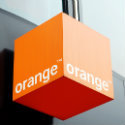
Also in today's EMEA regional roundup: Deutsche Telekom does IoT with 1NCE and AWS; Vodafone turns to Cisco Meraki for small-business broadband; UK considers mobile phone ban in schools.
Orange has joined forces with Sierra Wireless, Lacroix and STMicroelectroincs to create what it hopes will be an IoT supergroup, one that it is calling IoT Continuum. The idea is that Orange supplies the connectivity and IoT services, STMicroelectronics and Sierra Wireless supply the hardware and software, and Lacroix provides design and manufacturing know-how. The consortium's overall aim is to "simplify and accelerate the mass deployment of IoT in Europe and beyond."
In a similar neck of the woods, Deutsche Telekom says it is cozying up to M2M/IoT specialist 1NCE and Amazon Web Services (AWS) to simplify IoT for enterprises. Specifically, the German uber-carrier claims that its new "zero-touch integration service" ensures that devices are quickly connected to its worldwide IoT network and soon up and running courtesy of automated device onboarding provided by AWS.
AWS has also been selected by Swisscom as its preferred public cloud provider for its enterprise IT. According to AWS, Swisscom will use its cloud clout to "increase IT agility, drive operational efficiencies, and accelerate time to market for new information and communications technology (ICT) features and services." Swisscom will migrate a range of applications to the AWS cloud, including enterprise resource planning and operational/business support systems (OSS/BSS).
Vodafone UK has turned to Cisco Meraki to power its new Complete Connectivity broadband offering for small and midsized businesses. Complete Connectivity is intended to provide manageable enterprise-grade hardware and software to smaller companies that don't necessarily have the in-house expertise to do it on their own. Security features such as malware protection, intrusion prevention and content filtering also come as standard, as does a mobile backup system that kicks in if the Wi-Fi goes down. Prices for Complete Connectivity start at £70 (US$97) per month.
Finland's Alma Media is expanding its use of Google Cloud with Elisa and plans to run SAP on the Google platform in the future. Elisa's green credentials were apparently a significant factor in the deal – the Finnish provider says it became the first carbon-neutral operator in the Nordics in 2020.
A group of actors, The Crown's Olivia Colman among them, is calling for a tax on the sale of electronic gadgets such as smartphones and laptops to raise money for those creating the content that is viewed on them. As the BBC reports, the group claims in a letter to the Times newspaper that a "Smart Fund" levy of between 1% and 3% on such devices could generate around £300 million ($415 million) a year for the UK's creative sector.
UK altnet CityFibre has expanded its partnership with Internet service provider Air Broadband, with full-fiber launches promised in Chester, Preston, Blackpool and seven other locations later this year. CityFibre expects to have substantially completed its nationwide build program by 2025, reaching approximately a third of the UK market and including at least 8 million homes.
The UK government's Department for Education has launched a consultation into "behaviour management strategies" for schools, with one of the proposals being put forward being a banning of mobile phones from school. Those with a view have until August 10 to make it known.
— Paul Rainford, Assistant Editor, Europe, Light Reading
Read more about:
EuropeAbout the Author(s)
You May Also Like




_International_Software_Products.jpeg?width=300&auto=webp&quality=80&disable=upscale)







